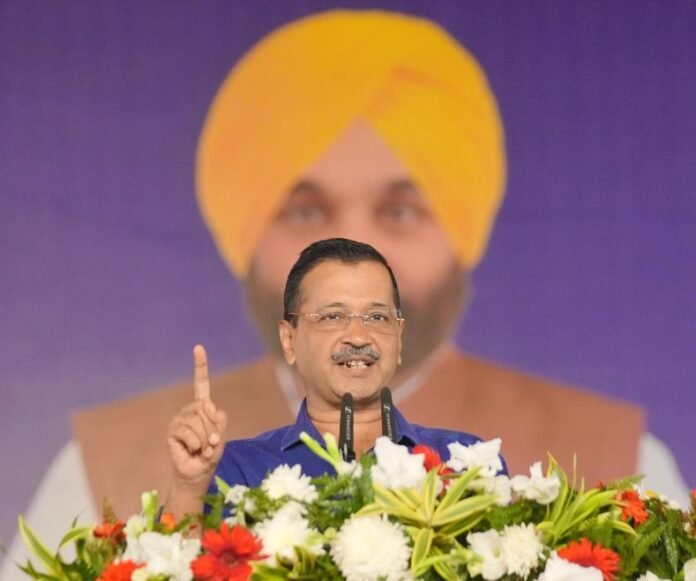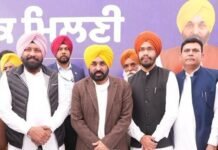Delhi Chief Minister Arvind Kejriwal has sent a strong and unambiguous message in the wake of the recent arrest of Shiromani Akali Dal leader Bikram Singh Majithia, stating that his government is committed to eradicating the drug menace from Punjab and will not spare even the most powerful individuals involved. In a sharp departure from the political tolerance of past administrations, Kejriwal emphasized that those who once protected drug traffickers or enabled them from positions of power will now face the full force of the law.
While addressing the media, Kejriwal said that in earlier governments, ministers’ vehicles were reportedly used for drug transportation, and international smugglers found shelter in the homes of political leaders. He made it clear that such impunity would no longer be tolerated. He underscored that the crackdown is based on evidence, not vendetta, and that legal processes are being followed meticulously. His remarks come as a direct assertion of the Aam Aadmi Party’s resolve to dismantle the deep-rooted narco-political nexus that has long plagued Punjab.
Supporting Kejriwal’s stance, Punjab Finance Minister Harpal Singh Cheema reaffirmed that the state’s anti-drug drive has been intensifying for the past three months. He said that the crackdown does not distinguish between the powerful and the obscure — anyone found guilty of drug peddling, regardless of their status, is being held accountable. He noted that assets are being seized, properties confiscated, and those involved are being sent to prison under due process of law.
Kejriwal’s remarks also appear to be a direct counter to growing criticism — including dissent within his own party — that questions the timing and intent of Majithia’s arrest. While opposition voices allege political targeting, Kejriwal insists the case is backed by substantial investigative material, and the arrests reflect the seriousness of the campaign against narcotics and organized crime. His declaration reflects a broader strategy not just for electoral positioning, but for asserting moral and administrative authority over one of the most complex socio-political issues in Punjab.
By placing drug-related crime at the center of his political agenda in Punjab, Kejriwal is attempting to reshape the narrative from allegations of political vendetta to a governance model rooted in law, evidence, and public safety. He is drawing a distinct contrast between past regimes that, according to him, enabled the drug crisis, and the current government which claims to be actively dismantling it. The political weight of such a statement, particularly amid ongoing legal and political developments, signals that AAP is doubling down on its anti-narcotics policy as a cornerstone of its governance image in Punjab.
As the investigation against Majithia and other figures continues, Kejriwal’s comments also serve to reinforce AAP’s positioning nationally — a party that claims to be tough on corruption and unwavering against criminal influence in politics. Whether this strategy will yield lasting results or intensify the political divide in Punjab remains to be seen, but for now, Kejriwal has left no doubt that the crackdown is just the beginning of a larger political and legal battle.
#ArvindKejriwal #PunjabDrugCrackdown #MajithiaArrest #AAPGovernment #WarOnDrugs #PoliticalAccountability #PunjabPolitics #AutoWebGeneratedStory
This is an auto web-generated news web story.





